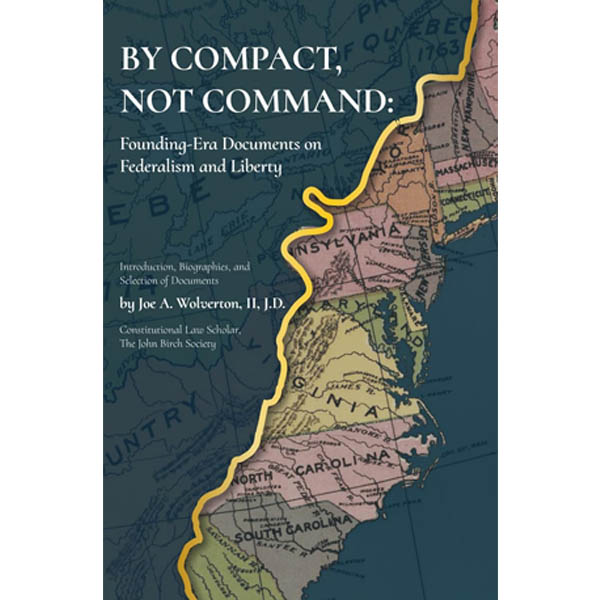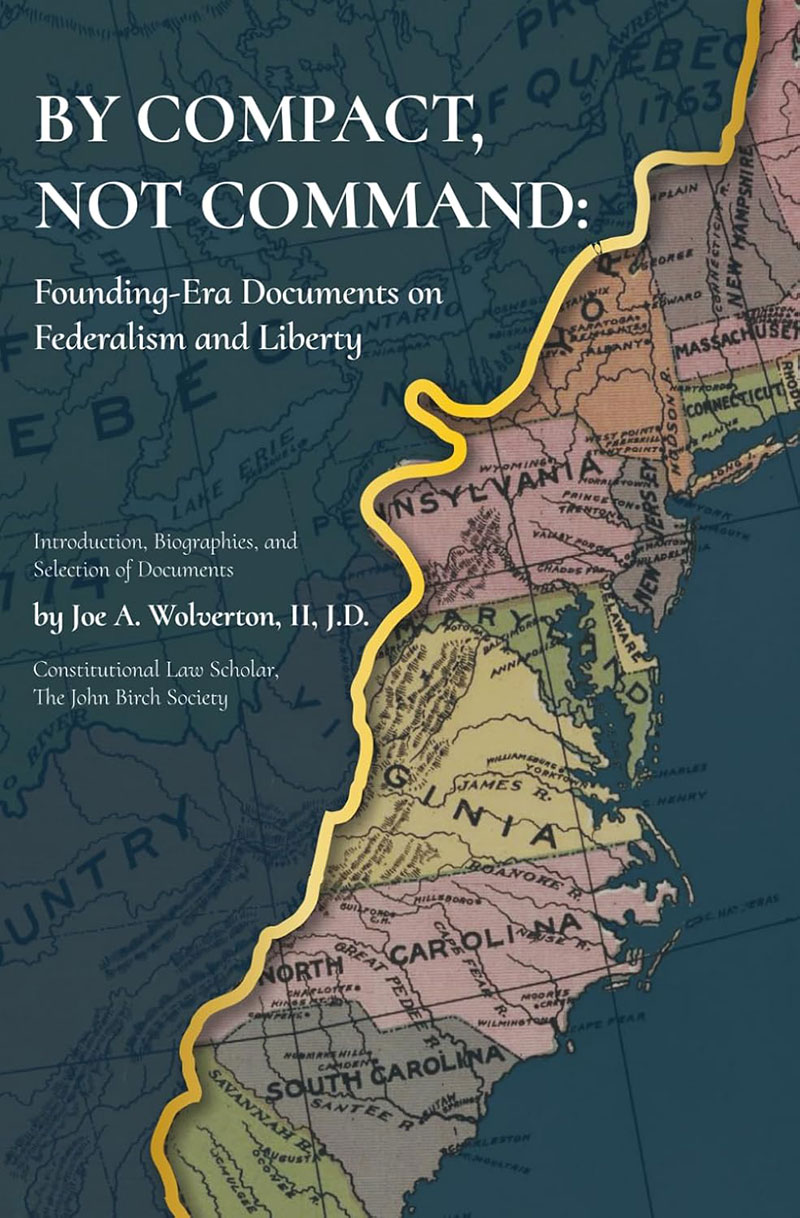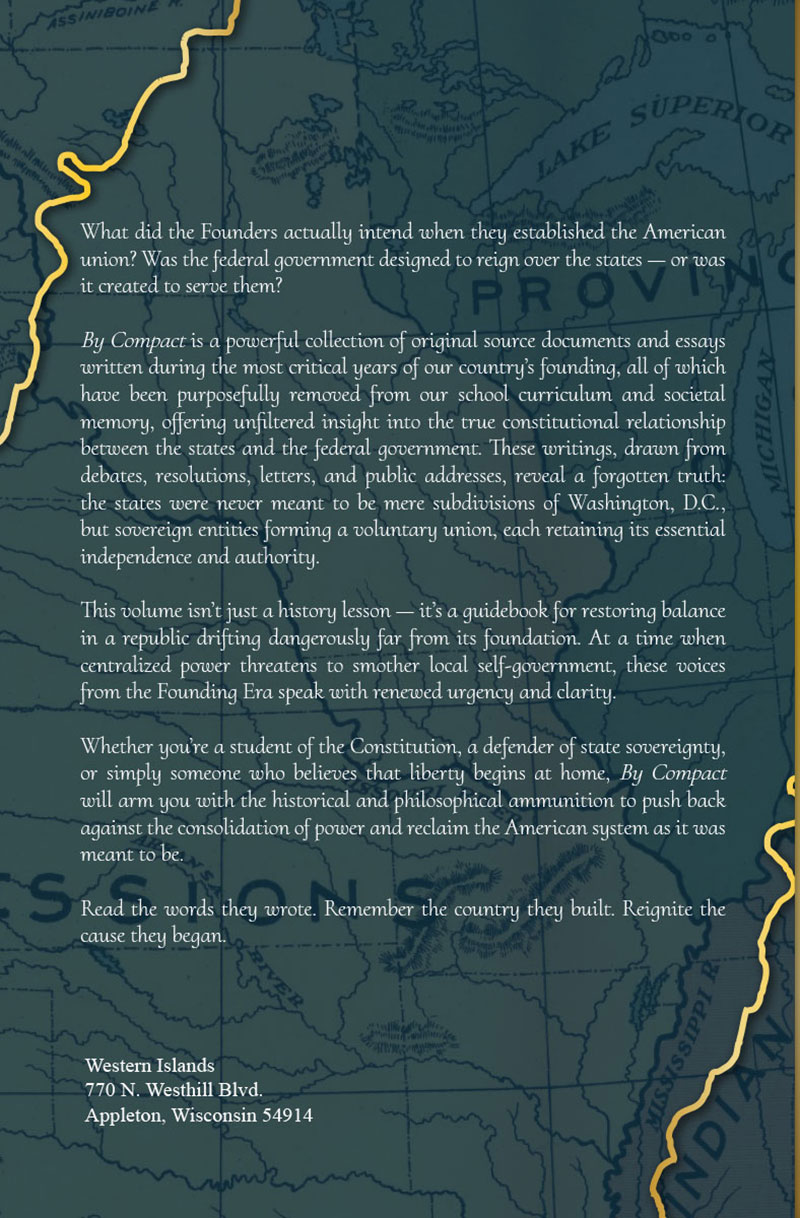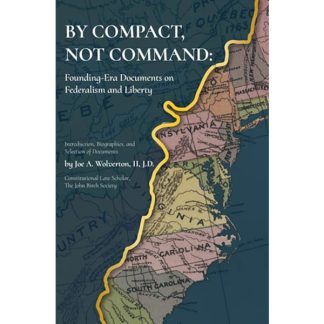By Compact, Not Command: Founding-Era Documents on Federalism and Liberty
$4.99
Who holds the federal government to account? The states. By Compact, Not Command assembles the Kentucky and Virginia Resolutions, Madison’s “Report of 1800,” Maria Pinckney’s catechism, Edmund Pendleton’s warning, John Taylor’s vindication, and Abel P. Upshur’s Brief Inquiry. Joe Wolverton, II, J.D., writes the introduction and author biographies, framing the sources for immediate use. Built for classrooms and committees—and for anyone who prefers the record to rhetoric.
Description
By Compact, Not Command returns readers to the Founders’ debate over federalism in the Founders’ own words. It presents the Union as they described it: a compact among sovereign states, with the federal government acting as a limited agent under a defined grant of powers. Edited by Joe Wolverton, II, J.D., and Connor Kimball, the collection features an original introduction by Wolverton and concise author biographies that situate each text in its historical moment — so readers enter the sources oriented and ready to test claims against evidence. Because arguments about constitutional authority deserve primary proof, the book keeps the focus on the record.
Here are the materials that shaped early American constitutional practice: the Kentucky and Virginia Resolutions, Madison’s “Report of 1800,” Maria Pinckney’s A Political Catechism, Edmund Pendleton’s 1801 admonition in the Richmond Examiner, John Taylor of Caroline’s Constructions Construed, and Abel P. Upshur’s Brief Inquiry. Across them, the same architecture appears. Powers are delegated by the parties to the compact; undelegated powers remain with the states and the people. Jefferson articulates interposition against unconstitutional acts. Madison explains political remedies available to a free people through their states. Pinckney translates legal principles into civic instruction. Taylor tests fashionable constructions and rejects consolidation. Upshur demonstrates, step by step, that the Constitution is a grant from the states, a compact resting on their authority.
The volume is arranged for use by students and officials alike. Shorter pieces establish first principles; sustained treatments then apply those principles under pressure. Wolverton’s introduction maps the terrain, while the biographies provide quick bearings on each author’s role, alliances, controversies, and context. Thus readers can argue from sources, cite with confidence, then build competence over time and across cases.
Why now? Centralized administration reaches into county offices, classrooms, small businesses, and city halls. To answer that pressure with law rather than slogans, citizens and lawmakers need the Founders’ tools close at hand. By Compact, Not Command delivers those tools in a single, navigable volume — and invites you to bring them to your statehouse, your courthouse, your classroom, and your kitchen table.
You may also like…
-
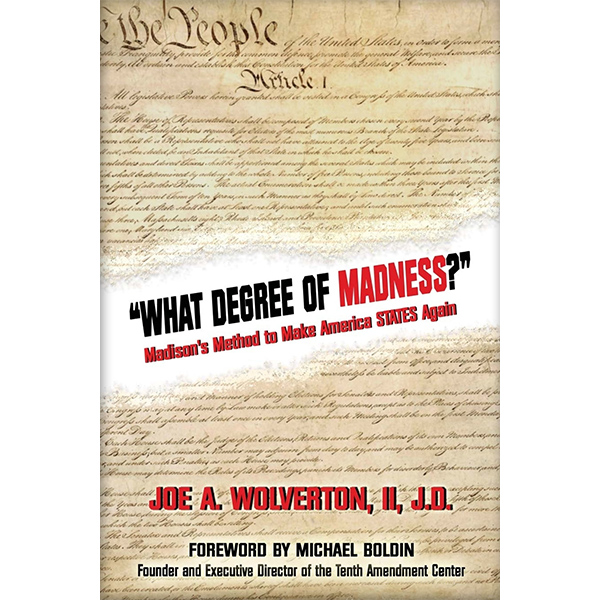
What Degree of Madness: Madison’s Method to Make America STATES Again
$10.99 Add to cart -

Article V Convention Brief
Price range: $1.25 through $1.95 Select options This product has multiple variants. The options may be chosen on the product page -

Constitutional Principles Booklet Set
$7.95 Add to cart -
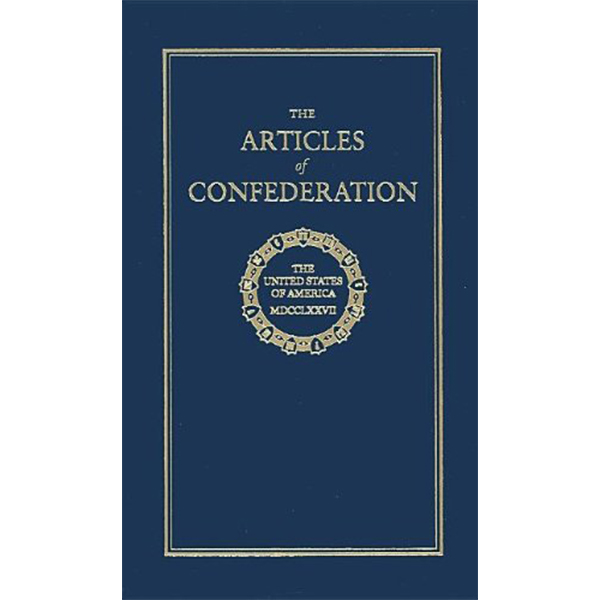
The Articles of Confederation
$9.99 Add to cart

